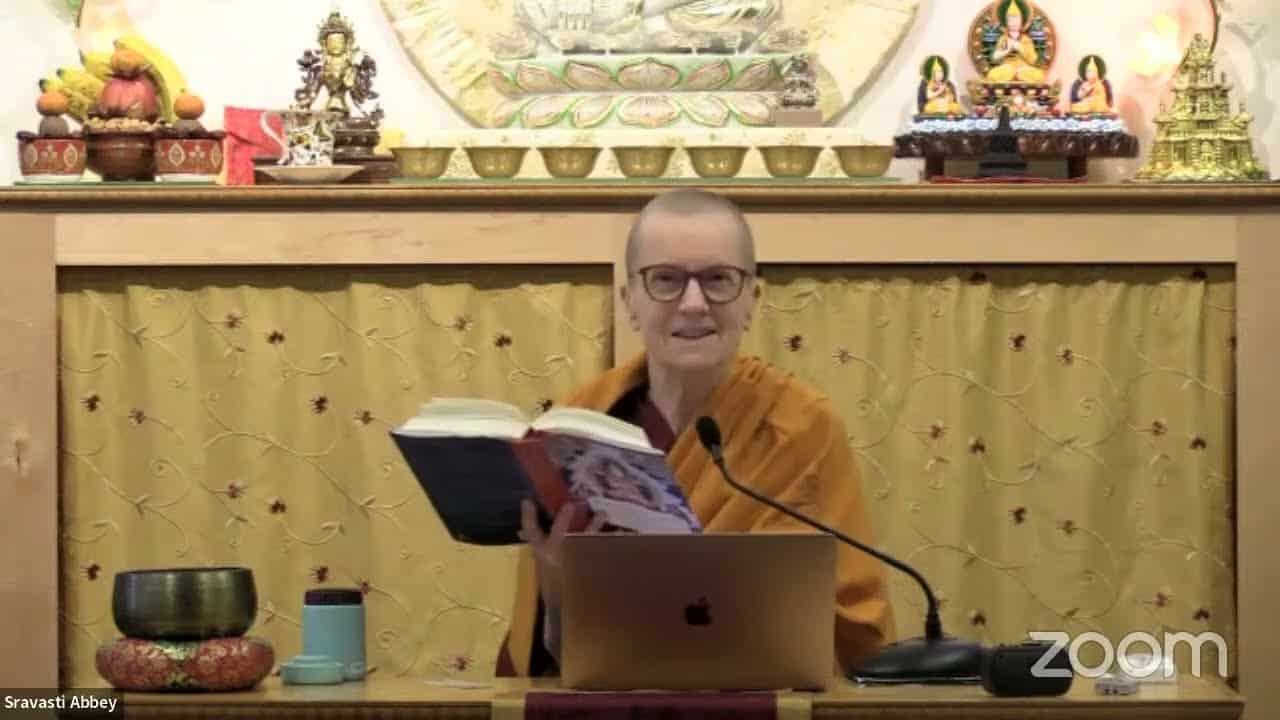Higher ethical codes and making mistakes
30 Following in the Buddha's Footsteps
Part of an ongoing series of teachings based on the book Following in the Buddha's Footsteps, the fourth volume in The Library of Wisdom and Compassion series by His Holiness the Dalai Lama and Venerable Thubten Chodron.
- Pratimoksha ethical codes emphasize actions of body and speech
- What ethical values do you live by?
- Bodhisattva ethical codes focus on subduing self-centered mind
- Bodhisattva precepts and Tantric precepts emphasize ethical conduct at mental level
- Motivation and attitude for doing the actions
- All actions can become dharma actions
- How ethical precepts apply to one person at different times based on what they are capable of
- Actions of highly advanced Tantric practitioners
- Making amends when we transgress precepts
- Confessing negative actions
- Seclusion from afflictions, eight worldly concerns, self-centred attitude and self-grasping ignorance
30 Higher Ethical codes and Making Mistakes (download)
Contemplation points
- Some scriptures mention that all actions can become Dharma actions; that is if our motivation is pure and sincere, we can turn all actions into Dharma actions. In the context of talking about ethical conduct, what are exceptions to these scriptures? What must support the action in order for it to be a Dharma action?
- There can be times when following bodhisattva precepts seem contradictory to the Pratimoksha precepts. What are some examples of this? For practitioners who do not have realizations, what is the danger of misunderstanding this teaching?
- How does taking precepts help us learn from our mistakes? What practices can we do to rectify our mistakes and restore our precepts?
- Reflect on the following from the text:
- What is the reason for not concealing our ethical misdeeds and broken precepts?
- What benefits arise from confessing and regretting our harmful actions?
- What effect would admitting and regretting misdeeds have on your mind? Is this something you want to do?
Venerable Thubten Chodron
Venerable Chodron emphasizes the practical application of Buddha’s teachings in our daily lives and is especially skilled at explaining them in ways easily understood and practiced by Westerners. She is well known for her warm, humorous, and lucid teachings. She was ordained as a Buddhist nun in 1977 by Kyabje Ling Rinpoche in Dharamsala, India, and in 1986 she received bhikshuni (full) ordination in Taiwan. Read her full bio.


